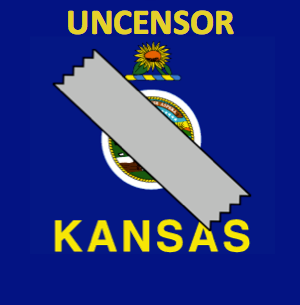 This is an open letter to our colleagues at the Regents universities in Kansas (Emporia State University, Fort Hays State University, Kansas State University, Pittsburg State University, University of Kansas, University of Kansas Medial Center, Wichita State University), but anyone who would like to participate is welcome to do so!
This is an open letter to our colleagues at the Regents universities in Kansas (Emporia State University, Fort Hays State University, Kansas State University, Pittsburg State University, University of Kansas, University of Kansas Medial Center, Wichita State University), but anyone who would like to participate is welcome to do so!
Dear Colleagues,
As the Kansas Board of Regents prepares to consider the workgroup’s recommended changes to its social media policy, we’re inviting you to join us in helping students understand the important implications for themselves, their university, and their society. On Monday April 21 and Tuesday April 22, we’re going to do a “Five on the Hour Pause,” where at the top of the hour we each take 5 minutes to talk a little bit about why freedom of speech is important to our discipline, academia, and the culture at large.
We’re doing it at the top of each hour to provide a sense of the unifying, interdisciplinary importance of this topic. We’re proposing two days to cover classes that meet MWF as well as Tu-Th. If your class meets once a week but not on a Monday or Tuesday, then we invite you to simply take five minutes during that class on whatever day it meets. We believe this is an important teaching moment for all the students at our campus.
If you are interested in participating, here are a few guidelines we suggest you follow:
(1) Present a clear explanation of academic freedom. We’ve drafted a statement, but you should feel free to modify it, if you think it needs modifying:
The university is a community of scholars. As scholars, we discover new knowledge and create new ideas. These ideas are different from what has come before, and difference can be controversial. Indeed, sometimes our ideas challenge social mores. To test our ideas, we debate them, refine them, change them. This process of creation and discovery – evaluated through open and unfettered dialogue – is the means by which our civilization progresses. And the only environment under which this process can occur is an environment of free speech.
(2) Identify the discipline-specific implications for the class you’re teaching. How have unconventional or controversial ideas, research methods, literature, etc. impacted the field your students study with you?
(3) Invite students to read the KBOR’s policy and the workgroup’s recommendation for a new policy. Inform them about the process involved thus far, who the participants are in these current events, as well as the timetable for public commentary: <http://www.k-state.edu/today/announcement.php?id=13496>. Invite them to explore further the connection between “real world” current events and the concept of academic freedom as it pertains to the subject they study in your course. Do not require your students to take any specific action. Do not use class time to lobby on the issue: remember that this is a teaching moment and not a form of political activity, in keeping with Kansas State law and KBOR policies.
Here are some informative links you might share with them:
- The Revised Social Media Policy: <http://www.k-state.edu/president/initiatives/social-media/Social%20Media%20Work%20Group%20Report.pdf>
- The Current Social Media Policy (under “b. Other”): <http://www.kansasregents.org/policy_chapter_ii_c_suspensions>
- The Kansas Board of Regents home page: <http://www.kansasregents.org/index.cfm>
- Fred Logan, Chair of Board of Regents (and co-author of Current Social Media Policy)
- Breeze Richardson, Associate Director of Communications & Government Relations, Kansas Board of Regents
- Social Media Policy Workgroup members: <http://www.k-state.edu/president/initiatives/social-media/members.html>
Thanks very much for considering joining us.
Sincerely yours,
Lynn Davidman, Department of Sociology, University of Kansas
Elizabeth Dodd, Department of English, Kansas State University
Susan Kemper, Department of Psychology, University of Kansas
Philip Nel, Department of English, Kansas State University
Harald E.L. Prins, Department of Anthropology, Kansas State University
Chris Sorensen, Department of Physics, Kansas State University
Image source: Uncensor Kansas (Facebook page). On Facebook, there’s also the more active group, Kansas Universities’ Faculty & Staff Against Regents’ Speech Policy.
A more comprehensive list of relevant links can be found here, and of course there are several posts on this blog tagged Kansas Board of Regents.

Ernest Shult